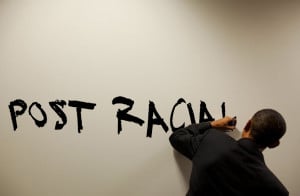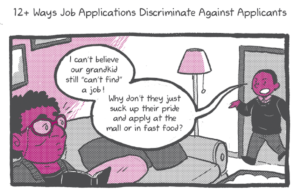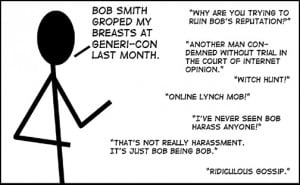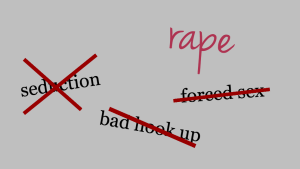
Source: Saving Our Future
I’m sitting at a coffee shop in a rapidly gentrifying Brooklyn neighborhood as I write this article.
It has a very hipster vibe, $5 coffee drinks and mediocre baked goods, lots of young middle-class white people (gentrifiers) wearing beanies, and a hip-hop soundtrack playing in the background.
All of this is pretty infuriating to me, and the music just takes my frustration to the next level. It’s a reminder of all the ways white America gleefully continues to consume the cultural productions of Black people to be “cool,” while enacting violence on those same communities.
This café, that caters to young (usually white) people with wealth, is participating in the violent process of gentrification, whereby the Black and Caribbean families that live in this part of the city are being pushed out of their homes and jobs.
Yet, within the this café, customers can enjoy the Frank Ocean and Kendrick Lamar songs as they write their Sociology 101 papers on immigration (as the person next to me is) without thinking about their own role in the intensely racialized poverty of New York City.
This café is fantasizing and stabilizing a “post-racial” society – where gentrification isn’t dispossessing Black families, and we have all moved in an idealized multi-cultural world, where we can all sit in a room together without the peskiness of racism coming between us (or listen to hip-hop without thinking about the political messages it brings up).
In a post-racial world, somehow, we have magically moved past racial hierarchies, privileges, and oppressions into a supposedly utopic world where race doesn’t exist.
In fact, in this mythological reality, bringing up race is the ultimate act of racism.
Race Is More Than Identity
In America, people of color have created rich cultures out of resistance and unity in the face of exclusion, marginalization, and domination. Many of us can map out our own individual identities in these historical legacies.
Hence, it is crucial that we talk about identity. Our racial experiences inform who we are to a great deal and remind us that what is political is already profoundly personal.
Yet, often when people talk about race, they make the mistake of limiting their discussion to the way race operates at an individual level. We have begun to understand identity as myopic and unlinked from history and material realities.
A post-racial discourse teaches that we end racism simply by celebrating, recognizing, and eventually assimilating racial identities into the dominant culture; it masks a lot of the ways race shapes the structures and institutions of the world we live in.
Many people don’t want to live in a post-racial world because they don’t want to see the erasure of their identities. I don’t want to live in a post-racial world either – but it’s not just because I want to see my identity acknowledged and celebrated.
Rather, I don’t want to live in a world that perpetually denies and dismisses the importance and deterministic power of race while maintaining a system that is still so very racist.
I don’t want to live in a world where racism is constantly perpetuated because we are unwilling to name it.
A Post-Racial Origin Story
The idea of a living in a “post-racial” America is something that settled into our culture after President Obama, our first Black president, was elected.
Having a Black president fulfilled a multicultural picture of the country and was a way to bolster the racist argument that “race no longer mattered.”
The achievement of an individual was upheld to dismiss the fundamental and continued importance of race in shaping America’s institutions and culture.
President Obama’s presidency was perceived as America’s post-racial accomplishment.
That fallacy forced some of us to begin thinking about the fact that when we recognize race solely as an identity to be celebrated (and not something attached to material, social, and historical realities), we fuel the dangerous idea that we have finally “move beyond” race – and hence, could also finally move beyond all that uncomfortable, vibe-killing talk of racism, racial justice, anti-racism accountability, and white privilege.
Racists Are Bad, But Racism Isn’t
Today, “racist” is like a dirty word – the most vile insult you could throw at someone.
When incidents of racism occur in the news, we often see a focus on the act of calling someone or something racist rather than the actuality of racism itself. We hold our breaths when a famous figure is named a racist, but we barely blink when racial oppression is discussed.
It is a personal affront to be called a racist, but we persist in treating the systemic and cultural perpetuation of racism as inevitable, as normal, as a mandated part of our culture.
This is a part of living in a “post-racial” world – racism is everywhere, but we cannot name it because we have silently agreed that we have moved past it.
If we don’t properly name racism when we see it, we not only continue to live in a world ruled by racism – we completely denounce its existence and allow the oppressed to continue to be blamed for their oppression.
This is the insidiousness of a “post-racial” world – not simply that society will suddenly lose its color and diversity.
This is an intentional and reactionary move in response to progressive anti-racist movements. By depoliticizing race through post-racial discourse, the magnitude of racism is rendered invisible and uncommunicable.
No wonder post-racial discourse has left many of us feeling tongue-tied, like our words were stolen from us. Taking away the language we use to talk about racial injustice is exactly how post-racial discourse works.
Being Post-Racial Is Not Politically Correct
Many white people uphold post-racial attitudes under the guise that it is “politically correct” to ignore a person’s race.
When some people of color say they don’t want to live in a post-racial society, they are responding to this invisiblizing error. They are opposing the idea of a world where race doesn’t have a name.
If race matters to them personally, then race should matter to everyone. However, this attitude can potentially reek of a certain entitlement.
Wealthy and class-privileged people of color seem to most often experience racism at the individual, psychological level – interpersonal acts of discrimination and bias. A post-racial discourse diminishes the harm that such acts cause.
It insensitively brushes off people’s racial identities as distractions. It removes the word “hate” from hate-crime.
I wish people would go beyond their own personal experience in attacking the idea of a post-racial world.
Race matters not only because it is important to us on a personal level, but because it is still unabatedly justification for injustice and the dominant structure that shapes our racist society.
To the vast majority of working class people of color, a post-racial discourse that tosses race out the window as “irrelevant” actually condones the way racial oppression is either relegating them to the margins of society or killing them.
Post-racial discourse has no explanation for the fact that a Black person is killed every 28 hours by the police. Nor does it offer any reason for an (in)justice system based on solving social problems by putting (disproportionately Black) people in cages.
It would continue to insist that anti-black racism is a figment of our imaginations.
Look around you.
We may have a Black president, but we are also living in a time of public outrage over the deaths of Black lives, lives that are taken on a regular basis because our (in)justice system is racist.
There is nothing “post-racial” about that.
We’re Not Post-Anything (Yet)
Kerry Washington recently made a great distinction between being post-racial (erasing race) and post-racist (erasing racism) when she said:
“I’m interested in living in a post-racist world, where being African American doesn’t dictate limitations on what I can do – but I don’t want to live post-race. Our differences are so fascinating and wonderful. We don’t want to all be the same. Who wants that?”
Its important to make note of this when we’re talking about race because there often seems to be a unarticulated fear that talking about race is what causes racism. Kerry rejects that – she wants racism to end and she wants to continue to express herself as a Black woman.
She reminds us that difference doesn’t cause injustice.
What does it mean to separate post-racism from being post-race? For one thing, we’re making a distinction between the popular (and racist) idea that race doesn’t matter anymore and the anti-racist ideal of a world without racism.
Post-racial discourse is racist because of the “post”: We can never move past historical and structural realities, but we can work towards a world where they are obsolete.
The latter is the world to which Kerry Washington alludes, though we won’t get there simply by recognizing each other’s differences.
We need a political praxis that seeks to understand why those differences exist – and how they are related to power and oppression.
We can’t attack post-racialism by simply recognizing and celebrating each other’s differences while listening to hip-hop music and writing essays about immigration a hipster café in a gentrified neighborhood.
What we need is race-consciousness – at the individual, structural, and institutional levels – to acutely identify and dissolve the racial injustice that is embedded in the world we live in.
In the meantime, I won’t be returning to this café.
[do_widget id=”text-101″]
Rebecca John is a Contributing Writer for Everyday Feminism and a thinker who recently graduated from university. Freshly out of the academy, she is happily rejecting the academic industrial complex and spending her time immersed in movements for social justice. She enjoys frequenting bakeries, recommending readings to her friends, and long meditative subway rides. Follow her on Twitter @r0guebird. Read her articles here.
Search our 3000+ articles!
Read our articles about:
Our online racial justice training
Used by hundreds of universities, non-profits, and businesses.
Click to learn more




















